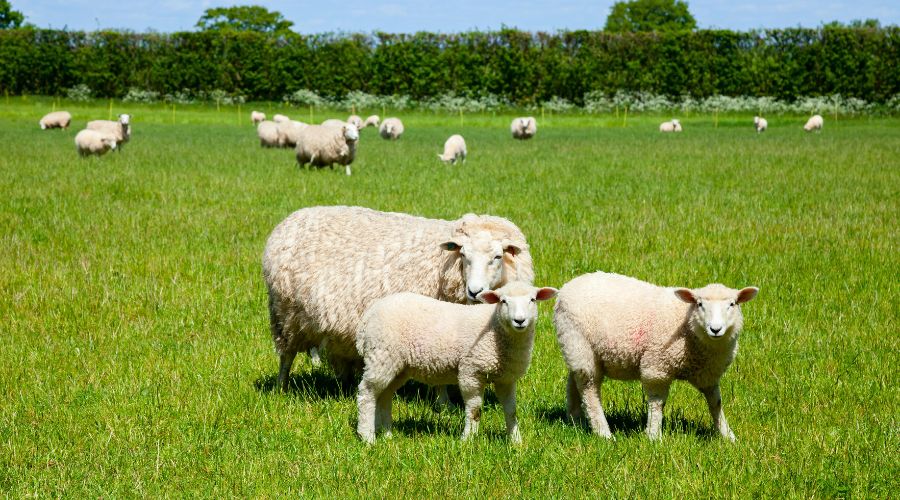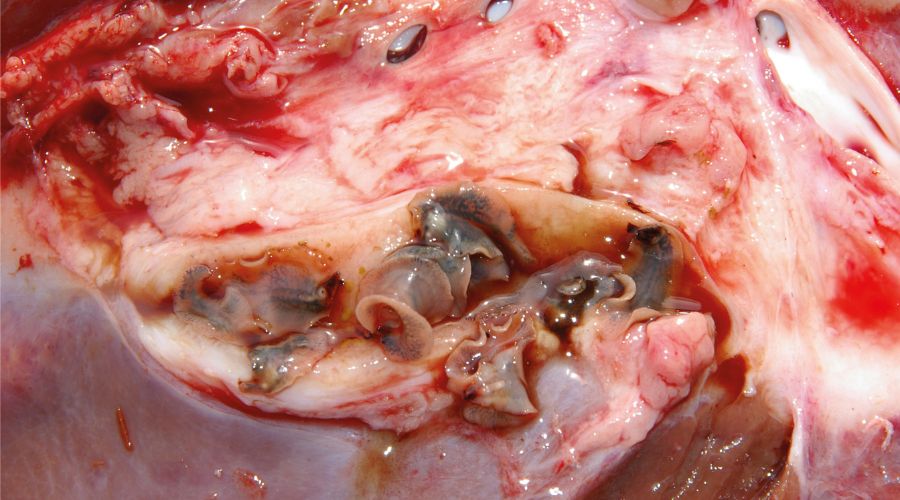Farmers urged to ramp up liver fluke monitoring after acute cases were identified
12th October 2024
Sheep and cattle in some areas of the UK may face an earlier risk of acute liver fluke this winter compared to previous years, with the Animal and Plant Health Agency (APHA) already reporting cases.

Independent sheep consultant Nerys Wright said that persistent wet weather this year has accelerated the emergence of acute fluke cases in certain regions, emphasising the importance for farmers to regularly monitor for fluke to assess the specific risk to their farms.
Mrs Wright: “This year’s fluke season will be longer, and the risk will likely differ compared to previous years due to the weather, making monitoring for clinical signs, like poor performance and weight loss, as well as testing even more critical.”
Sheep do not develop immunity to fluke, and no treatment has a persistent effect, so the expert stresses that if a farm has previously been affected by fluke, managing fluke risk is essential.
Testing options for fluke
“You don’t want to treat too early if the risk isn’t present on your farm, as you may have to treat again later in the season. Similarly, you don’t want to treat too late and have production losses or even death. It’s important to monitor and test regularly during the risk period,” the sheep consultant added.
Mrs Wright outlines several testing options for fluke, including:
- Post Mortem: Asking your vet to postmortem ewes or lambs that die at this time of the year, is an opportunity to look at the livers and bile ducts for evidence of acute or historical fluke.
- Blood Antibody ELISA Test: This shows whether a sheep has been exposed to liver fluke and is most effective for first-grazing season animals, such as ewe lambs.
- Coproantigen ELISA Test: Conducted on dung samples, this test is useful in late autumn/winter to detect mid- to late-stage infections. It generally provides two to three weeks warning compared to a faecal egg test.
- Faecal Fluke Egg Count: This can only detect liver fluke when egg-laying adults are present.
- Abattoir feedback: If you send lambs or cull ewes direct to slaughter, asking for feedback on the livers is valuable information about historic infections, highlighting how well fluke is managed on your farm.

Understand what you’re dealing with
Mrs Wright said: “Speak to your vet or animal health advisor who knows your farm about testing and treatment options, as it is difficult for advisers to know what to do or when to act without understanding what is happening on your farm.”
When fluke risk is identified, various treatment options are available depending on the level of fluke challenge, the time of year, what products work on your farm and farm management systems.
Zoetis vet Patricia van Veen added that treatment choice will depend on whether the disease risk is caused by adult fluke, immature or early immature fluke migrating through the liver.
“Flukicides have varying efficacy for early/ late immature and mature fluke, so it’s essential to understand what you’re dealing with and consult your animal health advisor for the best treatment option.
“Oral triclabendazole formulation has the highest efficacy in the early immature fluke stages. In addition to treatments, managing ongoing risk by avoiding high-fluke risk fields, or even areas within fields, is essential to minimise production losses from acute fluke in autumn,” she concluded.

Read more livestock news.



